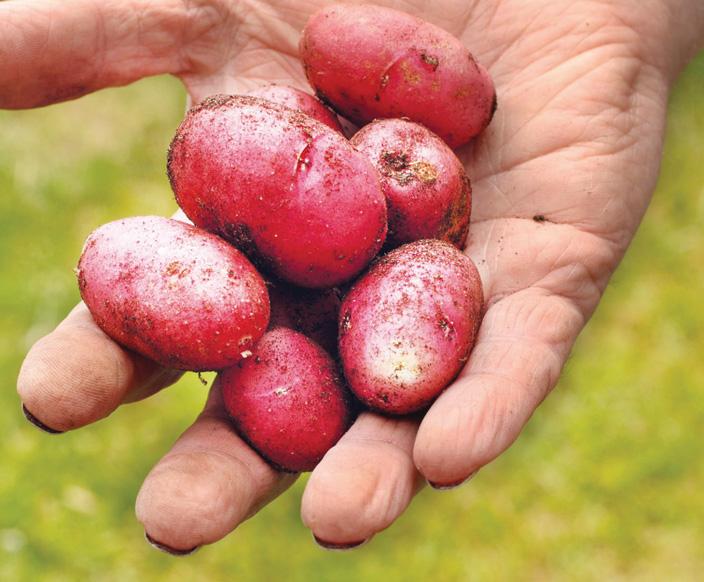
THERE’S a common error that many of us make when growing potatoes. Quite sensibly, we want to save our own small tubers or ‘sets’ to plant next spring, and we are likely to be careful doing so. If we suffer blight or other obvious problems, we will probably buy fresh stock. But there’s an invisible threat that we might overlook.
We’ve all heard the warning to save only from healthy-looking, productive plants. In practice, we tend to eat and store larger spuds, throw away the obviously rotten, green, tiny and misshapen crops, and save the small, egg-sized tubers for our sets.
This is fine – if we do so once. Consider if we grow, say, 50 sets into 50 plants each year. If we kept one small set from each for the following year, there’d be little problem. Now, if one plant threw more than half its crop (say, five of eight) as small tubers, that would not matter much, either.
この記事は Amateur Gardening の September 02, 2023 版に掲載されています。
7 日間の Magzter GOLD 無料トライアルを開始して、何千もの厳選されたプレミアム ストーリー、9,000 以上の雑誌や新聞にアクセスしてください。
すでに購読者です ? サインイン
この記事は Amateur Gardening の September 02, 2023 版に掲載されています。
7 日間の Magzter GOLD 無料トライアルを開始して、何千もの厳選されたプレミアム ストーリー、9,000 以上の雑誌や新聞にアクセスしてください。
すでに購読者です? サインイン

To dig or not to dig?
Should we be carrying out a full dig on plots now? Bob considers the pros and cons of the 'autumn dig' debate

The box ball blues
As if his beleaguered box hadn't already taken a beating, Toby now has to deal with some hungry box caterpillars

Save your own seeds
Masterclass on: seed saving

Strange sightings
Three unusual insects turn up in Val's garden in one day

A bolt from the blue!
Cornflowers are perfect for garden and vase

Winter moth prevention
Ruth shows you how to avoid maggoty tree fruits

Create a winter container
There are as many options as in summer

Lightweight gardening tools
AS well as being good for our mental health, gardening is also great exercise.

Autumn price round-up
AG finds better bargains in lesser-known brands

Rudbeckias
Rudbeckias are ideal for sunny summer patios and borders, with some able to survive our coldest winters